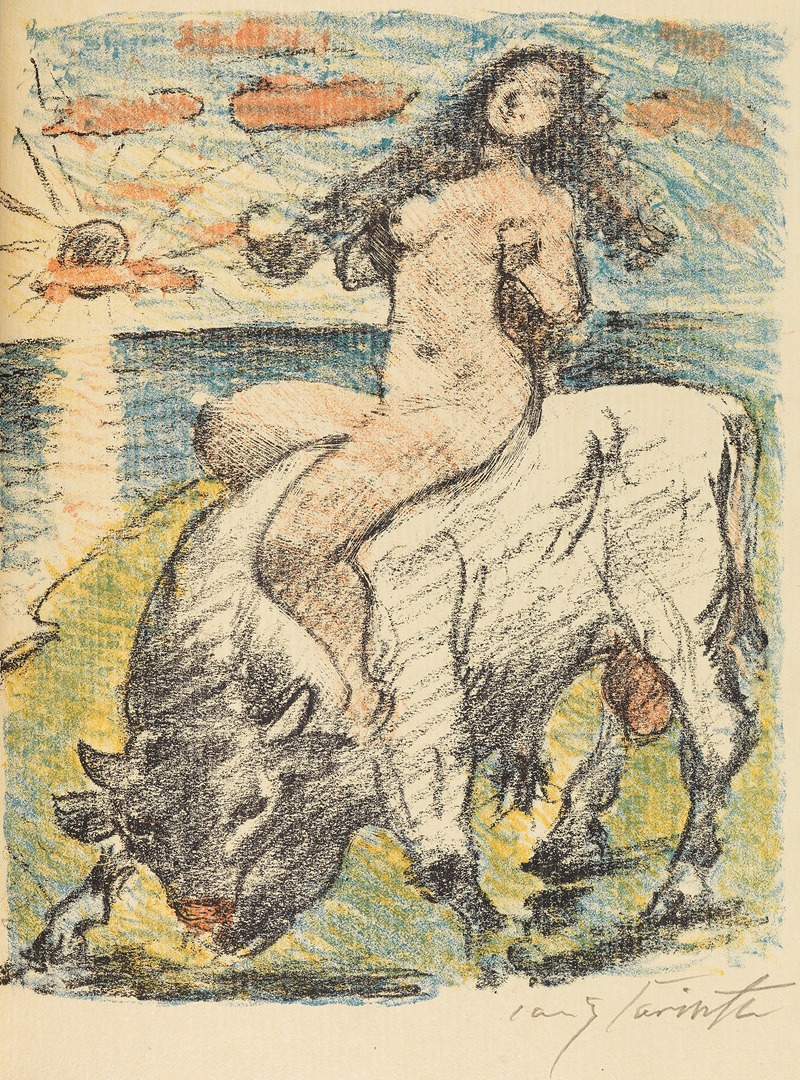
Der Venuswagen
A hand-painted replica of Lovis Corinth’s masterpiece Der Venuswagen, meticulously crafted by professional artists to capture the true essence of the original. Each piece is created with museum-quality canvas and rare mineral pigments, carefully painted by experienced artists with delicate brushstrokes and rich, layered colors to perfectly recreate the texture of the original artwork. Unlike machine-printed reproductions, this hand-painted version brings the painting to life, infused with the artist’s emotions and skill in every stroke. Whether for personal collection or home decoration, it instantly elevates the artistic atmosphere of any space.
Lovis Corinth's painting Der Venuswagen (The Chariot of Venus) is a notable work by the German artist, who was a leading figure in the transition from Impressionism to Expressionism in the late 19th and early 20th centuries. Corinth, known for his dynamic brushwork and vibrant use of color, created this piece in 1919, during the later period of his career. The painting reflects Corinth's fascination with mythological themes and his ability to reinterpret classical subjects with a modern sensibility.
Der Venuswagen depicts the Roman goddess Venus, the embodiment of love and beauty, riding a chariot. The scene is inspired by classical mythology, where Venus is often portrayed in a chariot drawn by doves or other creatures associated with her divine attributes. In Corinth's interpretation, the composition is imbued with a sense of movement and vitality, characteristic of his mature style. The figures in the painting are rendered with a robust physicality, and the swirling, expressive brushstrokes create a dynamic and almost chaotic atmosphere.
This work was created during a period of personal and professional transformation for Corinth. In 1911, he suffered a stroke that partially paralyzed his left side, forcing him to adapt his technique and approach to painting. Despite this setback, Corinth continued to produce some of his most celebrated works, including Der Venuswagen. The painting reflects his evolving style, which became more expressive and emotionally charged in the years following his stroke.
Corinth's choice of mythological subject matter in Der Venuswagen aligns with his broader interest in exploring themes of human passion, mortality, and the interplay between the divine and the earthly. His works often combine elements of realism with a more subjective, emotional intensity, making them distinctive within the context of early 20th-century European art.
Today, Der Venuswagen is recognized as an important example of Corinth's late work and his contribution to modern art. The painting is housed in the collection of the Museum der bildenden Künste in Leipzig, Germany, where it continues to be appreciated for its artistic and historical significance.

















